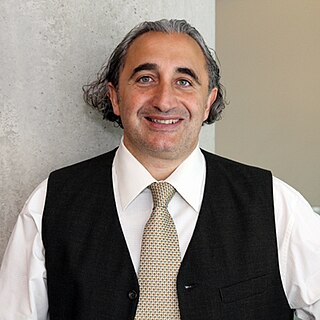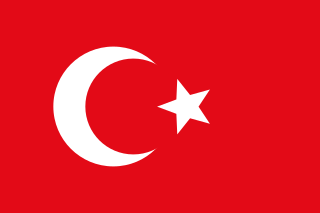Related Research Articles

The history of Lebanon covers the history of the modern Republic of Lebanon and the earlier emergence of Greater Lebanon under the French Mandate for Syria and the Lebanon, as well as the previous history of the region, covered by the modern state.

Beirut is the capital and largest city of Lebanon. As of 2014, Greater Beirut has a population of 2.5 million, just under half of Lebanon's population, which makes it the fourth-largest city in the Levant region and the sixteenth-largest in the Arab world. The city is situated on a peninsula at the midpoint of Lebanon's Mediterranean coast. Beirut has been inhabited for more than 5,000 years, making it one of the oldest cities in the world.

The 1982 Lebanon War, also called the Second Israeli invasion of Lebanon, began on 6 June 1982, when Israel invaded southern Lebanon. The invasion followed a series of attacks and counter-attacks between the Palestine Liberation Organization (PLO) operating in southern Lebanon and the Israeli military, which had caused civilian casualties on both sides of the border. The Israeli military operation, codenamed Operation Peace for Galilee, was launched after gunmen from the Abu Nidal Organization attempted to assassinate Shlomo Argov, Israel's ambassador to the United Kingdom. Israeli Prime Minister Menachem Begin blamed the PLO, using the incident as a casus belli. It was the second invasion of Lebanon by Israel, following the 1978 South Lebanon conflict.
Albert Habib Hourani, was a liberal Lebanese British historian, specialising in the history of the Middle East and Middle Eastern studies.

Middle Eastern studies is a name given to a number of academic programs associated with the study of the history, culture, politics, economies, and geography of the Middle East, an area that is generally interpreted to cover a range of nations including Egypt, Iran, Iraq, Israel, Jordan, Lebanon, Oman, Palestine, Saudi Arabia, Syria, Turkey, and Yemen. It is considered a form of area studies, taking an overtly interdisciplinary approach to the study of a region. In this sense Middle Eastern studies is a far broader and less traditional field than classical Islamic studies.

The presidentof the Lebanese Republic is the head of state of Lebanon. The president is elected by the parliament for a term of six years, which cannot be renewed immediately because they can only be renewed non-consecutively. By convention, the president is always a Maronite Christian who fulfills the same requirements as a candidate for the house of representatives, as per article 49 of the Lebanese constitution.
Habib Malik is a retired associate professor of history and cultural studies at the Lebanese American University (LAU). His father Charles Malik was a leading figure in the drafting and adoption of the 1948 Universal Declaration of Human Rights.

Christianity has a long and continuous history in Lebanon. Biblical scriptures show that Peter and Paul evangelized the Phoenicians, leading to the dawn of the ancient Patriarchate of Antioch. As such, Christianity in Lebanon is as old as Christian faith itself. Christianity spread slowly in Lebanon due to pagans who resisted conversion, but it ultimately spread throughout the country. Even after centuries of living under Muslim Empires, Christianity remains the dominant faith of the Mount Lebanon region and has substantial communities elsewhere.

The military occupation of Lebanon by Syria lasted from 1976, beginning with the Syrian intervention in the Lebanese Civil War, until April 30, 2005. This period saw significant Syrian military and political influence over Lebanon, impacting its governance, economy, and society. The occupation ended following intense international pressure and the assassination of former Lebanese Prime Minister Rafic Hariri. The legacy of the occupation continues to influence Lebanese-Syrian relations and Lebanon's internal political dynamics.

Nahlah Ayed is a Canadian journalist, who is currently the host of the academic documentary program Ideas on CBC Radio One and a reporter with CBC News. She was previously a foreign correspondent with the network and has also worked as a parliamentary correspondent under The Canadian Press. Her reporting on contemporary Middle Eastern politics has garnered multiple awards, both domestic and international.

Charles Habib Malik was a Lebanese academic, diplomat, philosopher, and politician. He served as the Lebanese representative to the United Nations, the President of the Commission on Human Rights and the United Nations General Assembly, a member of the Lebanese Cabinet, the head of the Ministry of Culture and Higher Education and of the Ministry of Foreign Affairs and Emigration, as well as being a theologian. He participated in the drafting of the 1948 Universal Declaration of Human Rights.

Gad Saad is a Canadian marketing professor at the John Molson School of Business at Concordia University. He has argued for applying evolutionary psychology to marketing and consumer behaviour. He wrote a blog for Psychology Today and hosts a podcast titled "The Saad Truth".

Walid Khalidi is a Palestinian historian who has written extensively on the Palestinian exodus. He is a co-founder of the Institute for Palestine Studies, established in Beirut in December 1963 as an independent research and publishing center focusing on the Palestine problem and the Arab–Israeli conflict, and was its general secretary until 2016.

Ottoman Syria is a historiographical term used to describe the group of divisions of the Ottoman Empire within the region of Levant, usually defined as being east of the Mediterranean Sea, west of the Euphrates River, north of the Arabian Desert and south of the Taurus Mountains.

Bachir Pierre Gemayel was a Lebanese militia commander who led the Lebanese Forces, the military wing of the Kataeb Party, in the Lebanese Civil War and was elected President of Lebanon in 1982.

Lebanese Greek Orthodox Christians refers to Lebanese people who are adherents of the Greek Orthodox Church of Antioch in Lebanon, which is an autocephalous Greek Orthodox Church within the wider communion of Eastern Orthodox Christianity, and is the second-largest Christian denomination in Lebanon after the Maronite Christians.
Said Tawfiq Khoury was a prominent Palestinian entrepreneur and philanthropist. He was one of the three founders of Consolidated Contractors Company, currently based in Athens. Khoury set up the business with his cousin Hasib Sabbagh in Beirut in 1952.

Lebanese Maronite Christians refers to Lebanese people who are members of the Maronite Church in Lebanon, the largest Christian body in the country. The Lebanese Maronite population is concentrated mainly in Mount Lebanon and East Beirut. They are believed to constitute about 30% of the total population of Lebanon.
Jawad Youssef Fares is a Lebanese physician-scientist. He was selected for the Forbes 30 Under 30 list in science and healthcare for his contribution to solving healthcare problems in the developing world. He also featured twice in the Forbes Middle East 30 Under 30, and was selected as one of the top 10 young scientists in the world by Genetic Engineering and Biotechnology News. In 2019, Fares was elected as a Fellow of The World Academy of Medical Sciences, and in 2021 was one of the Young Physician Leaders selected by the InterAcademy Partnership.

Nassif Youssef Hitti is a Lebanese diplomat, academic, professor and the former Minister of Foreign Affairs and Emigrants.
References
- ↑ "Henry Habib". www.concordia.ca. Archived from the original on 2016-03-06. Retrieved 2016-03-03.
- ↑ "Henry Habib". www.concordia.ca. Retrieved 2016-03-03.